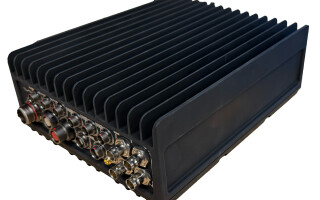Trio launches Industrial IoT-ready platform
March 01, 2017

Everybody wants to help you get your LTE-based IoT product out the door. Some offer software, some offer components, and some offer complete platforms. In an interesting marriage of partners,...
Everybody wants to help you get your LTE-based IoT product out the door. Some offer software, some offer components, and some offer complete platforms. In an interesting marriage of partners, Intel, AT&T, and Sonim Technologies fall into that third “systems” category. I say it’s interesting because I don’t generally expect to see end systems from Intel. But of the goal is to help accelerate time to market, they’ve clearly hit the nail on the head.
While it’s essentially a Sonim end product, the communications requirements were driven by AT&T and the reference board design came from Intel. Sonim pretty much picked it up from there, including the industrial design.
Dubbed by Intel as its LTE IoT Quick Deployment (LIQD) program, the program lets device OEMs like Sonim develop pre-certified, deployment-ready LTE solutions for commercial and industrial IoT applications. AT&T is the first carrier certified by Intel, and also the third partner in the Intel-Sonim product deployment. The end box is called the XPi, and because of AT&T’s involvement, it’s pre-certified and pre-integrated into the carrier’s platform services. This enables remote sensor management and faster deployment in the field.

Designed for demanding industrial environments, the XPi can operate in such applications as transportation, logistics, agriculture and construction. It can detect changes in temperature, humidity, ambient light, acceleration, and movement. To extend functionality, a sensor interface has been implemented to provide modular extensibility via accessories that can be securely mounted to the unit.
The XPi is based on the Intel Quark SE microcontroller C1000, and offers users a scalable IoT sensor platform with Bluetooth Smart connectivity and the ability to access AT&T’s platform solutions, aka M2X. It runs a version of the Zephyr Project real-time operating system, which is a deterministic flavor of Linux. A later version may include some form of Android.
According to Intel, “We will enable OEMs and carriers to deliver smart and connected devices that can deploy in weeks instead of months. Customers utilizing Intel LIQD devices will also be able to move from concept stage to large deployments without the engineering or technical burden of building a custom solution.” Sounds like a win for everyone.
Sonim XPi is expected to be available by the middle of the year for around $149. When successive generations arrive, significant price reductions may come with them, possibly even below $50.





